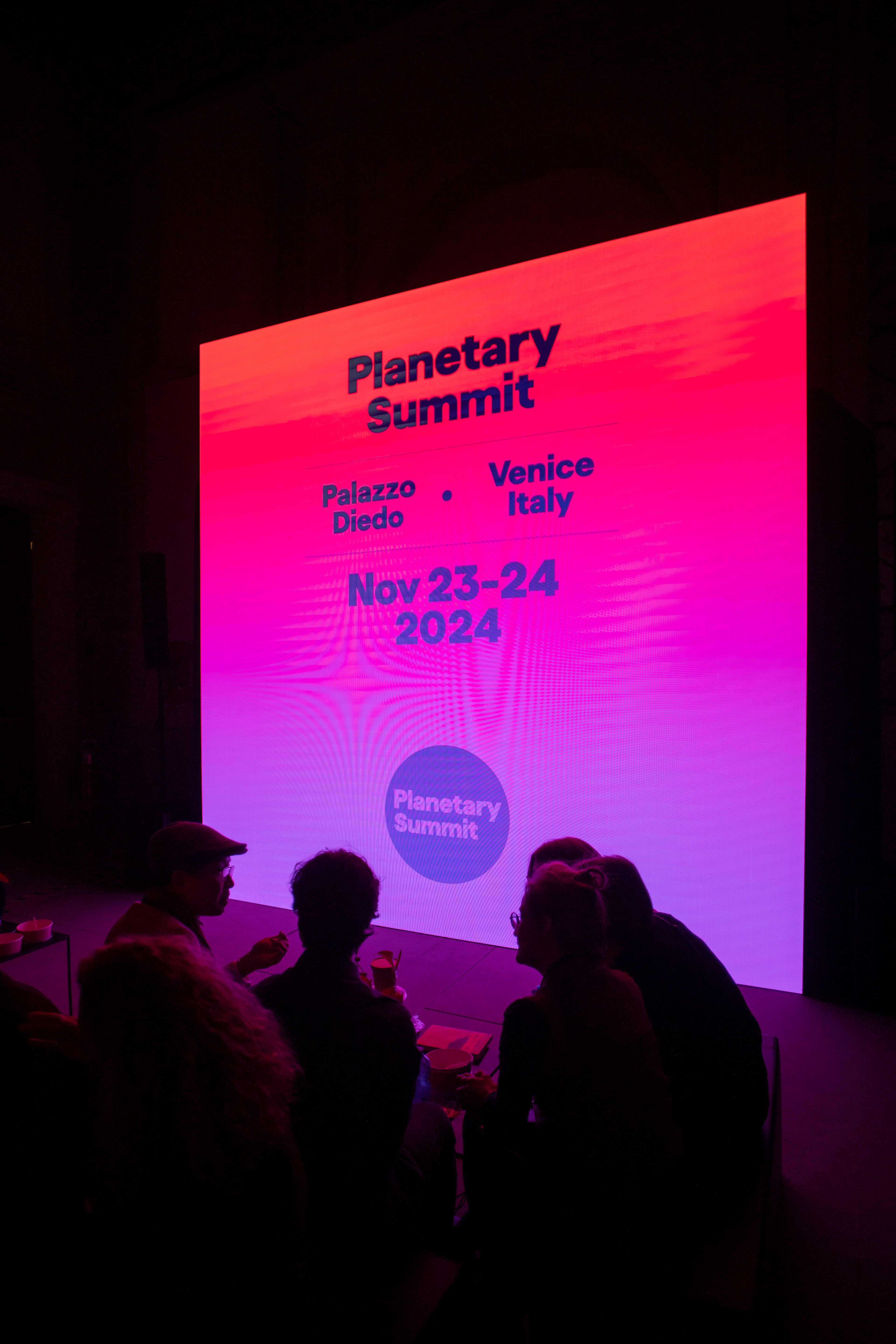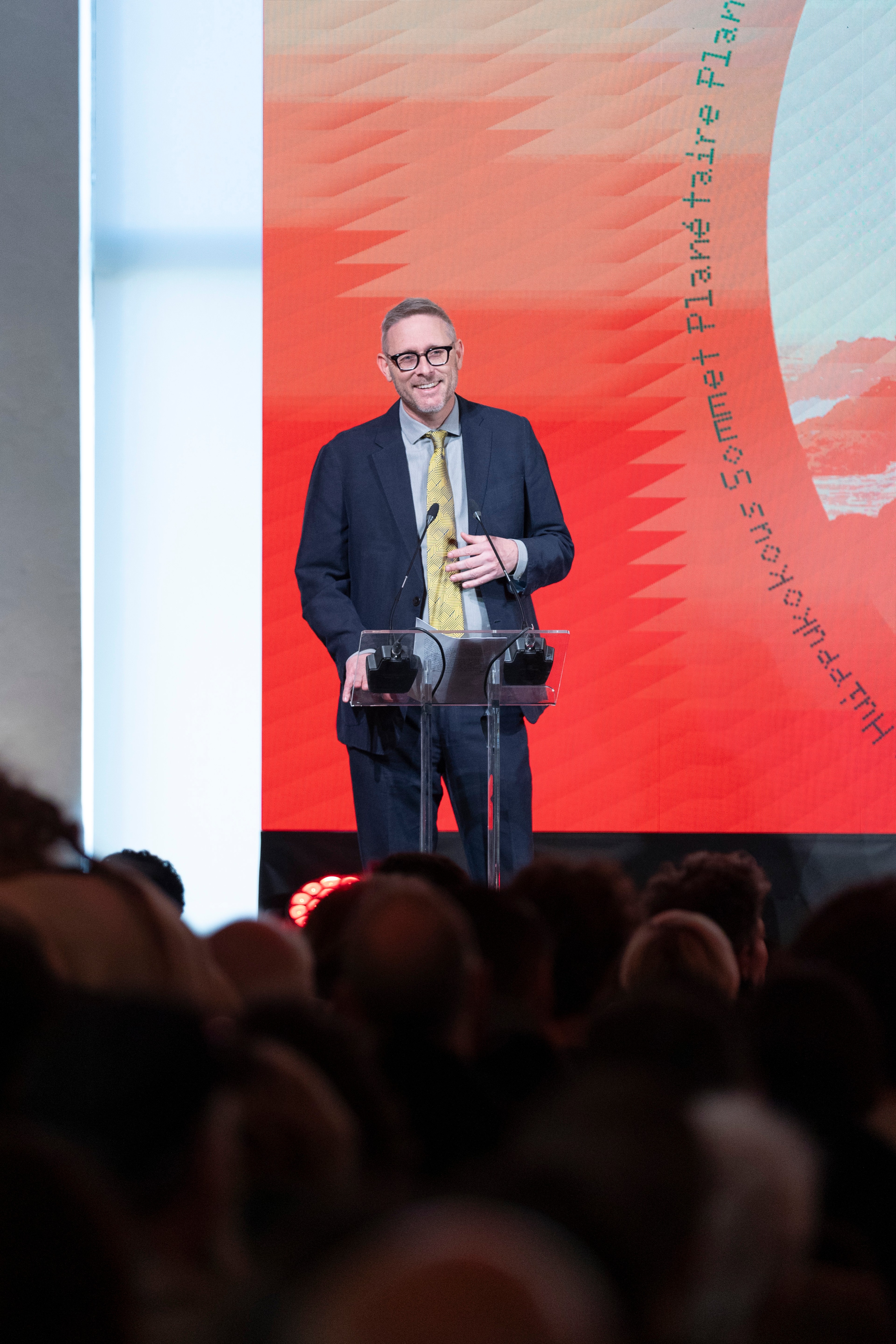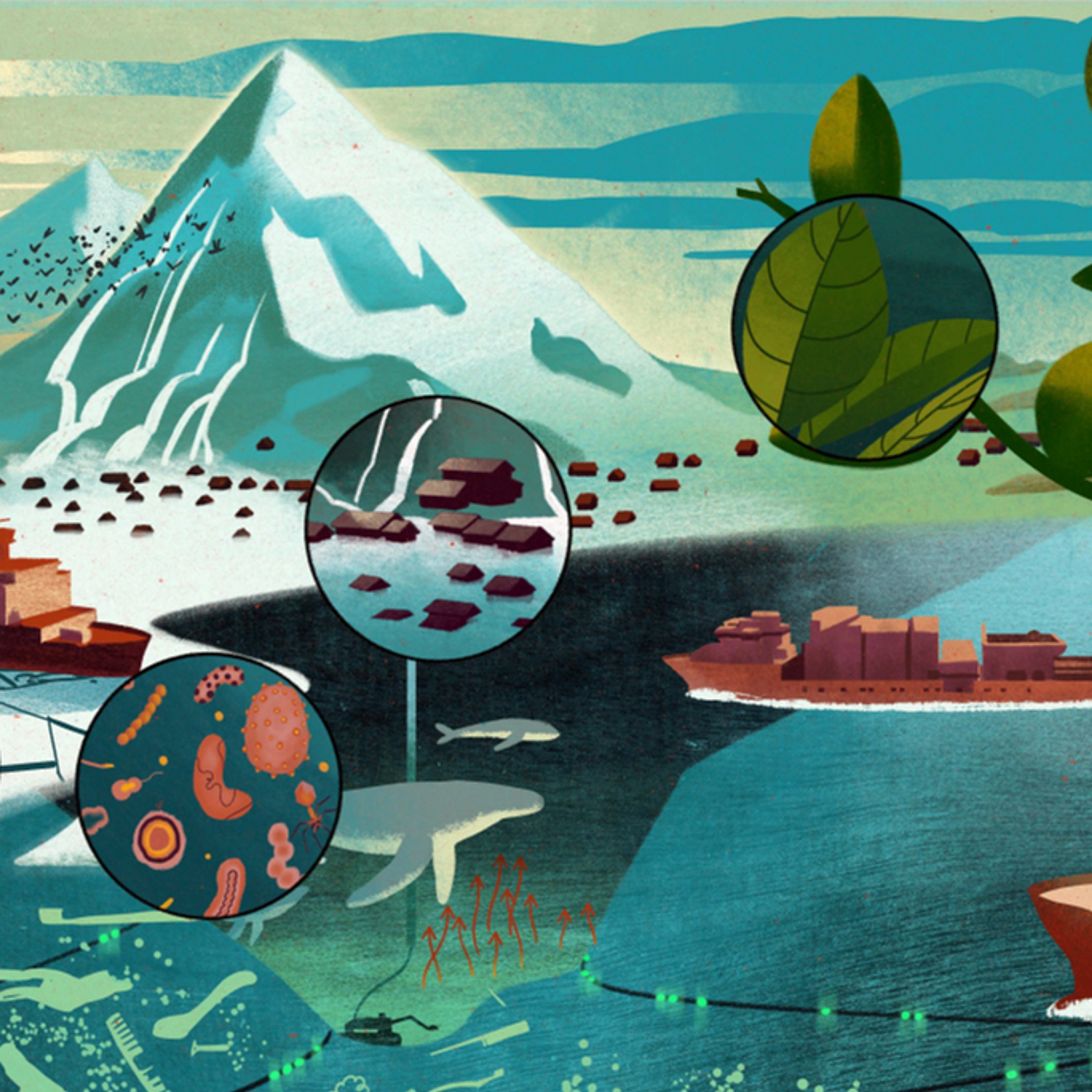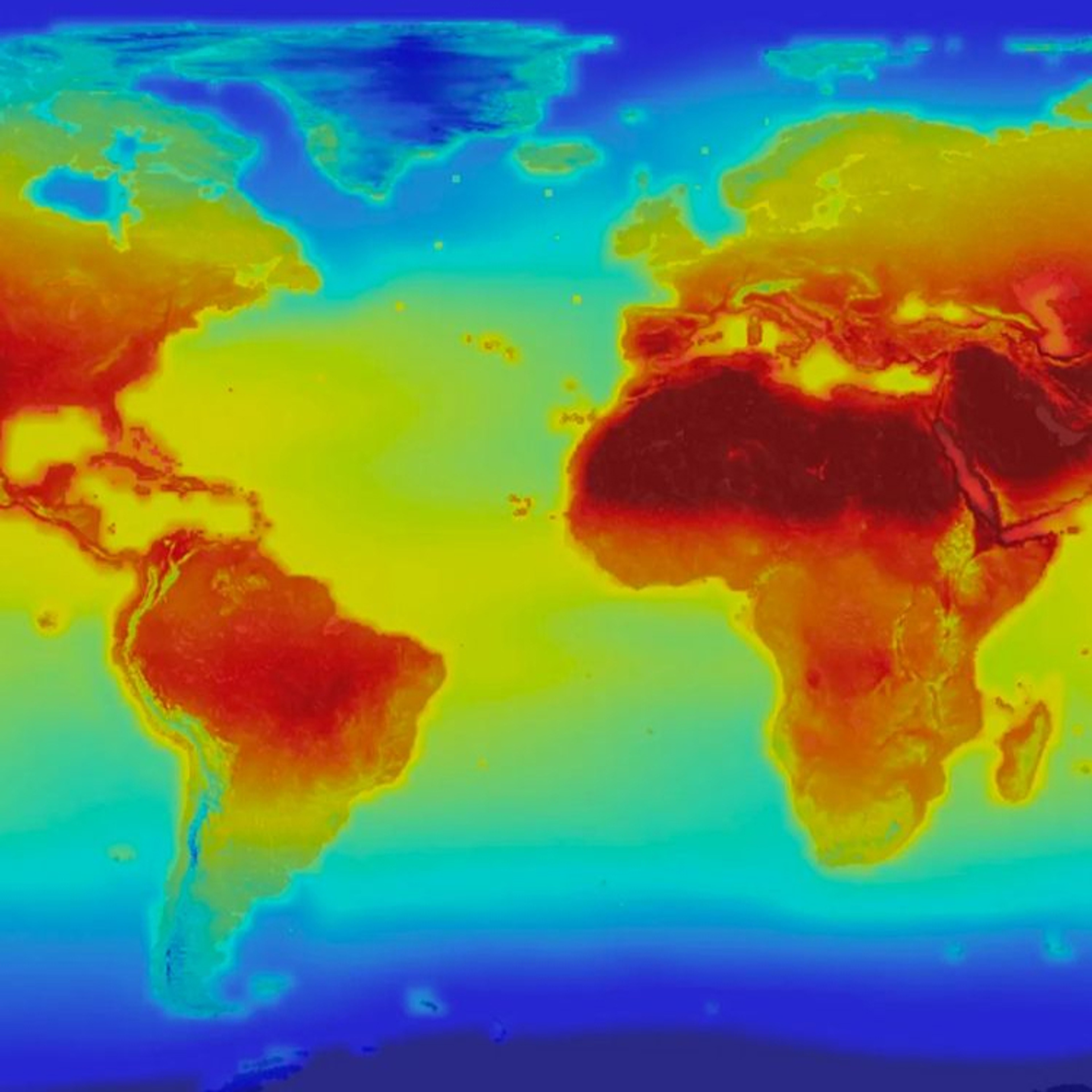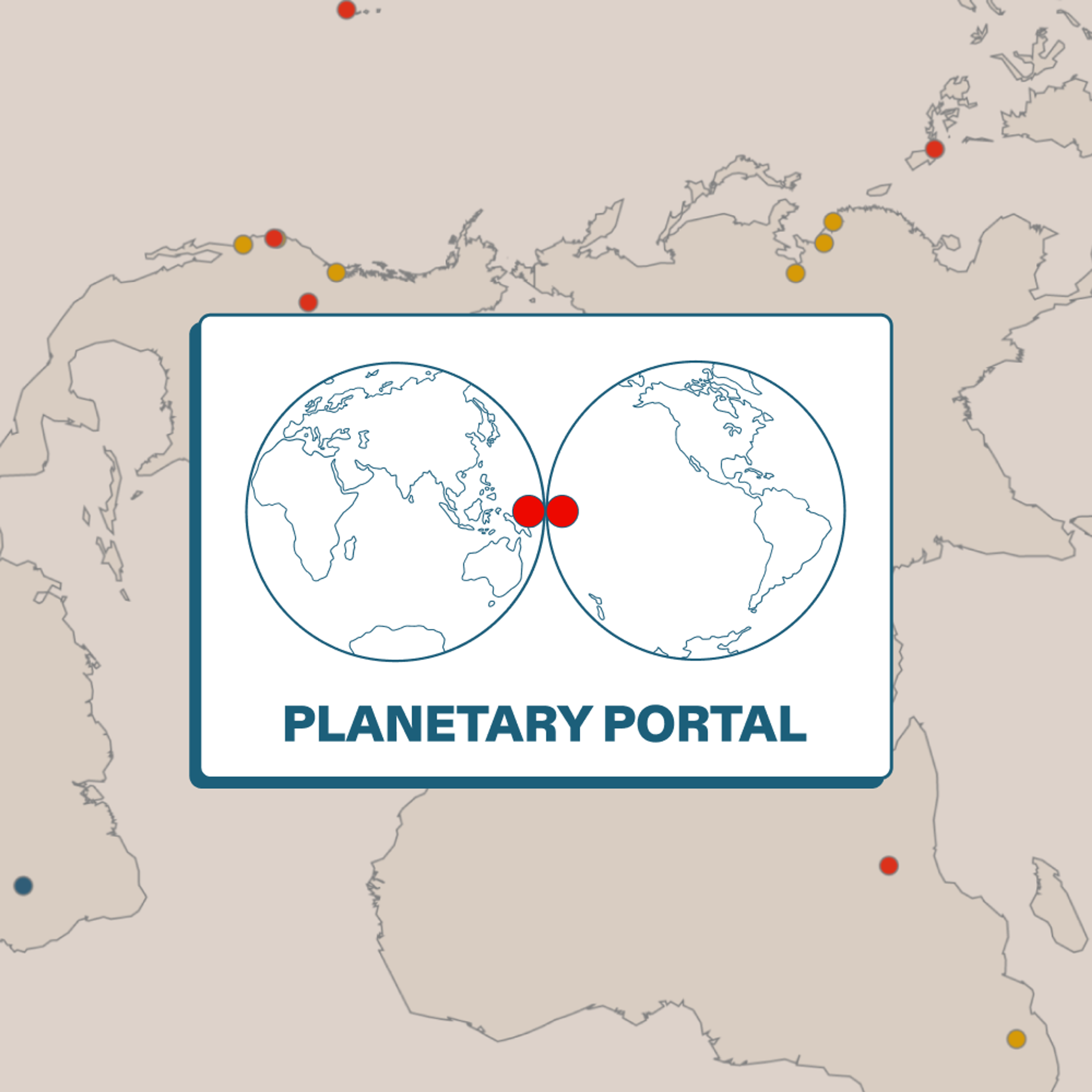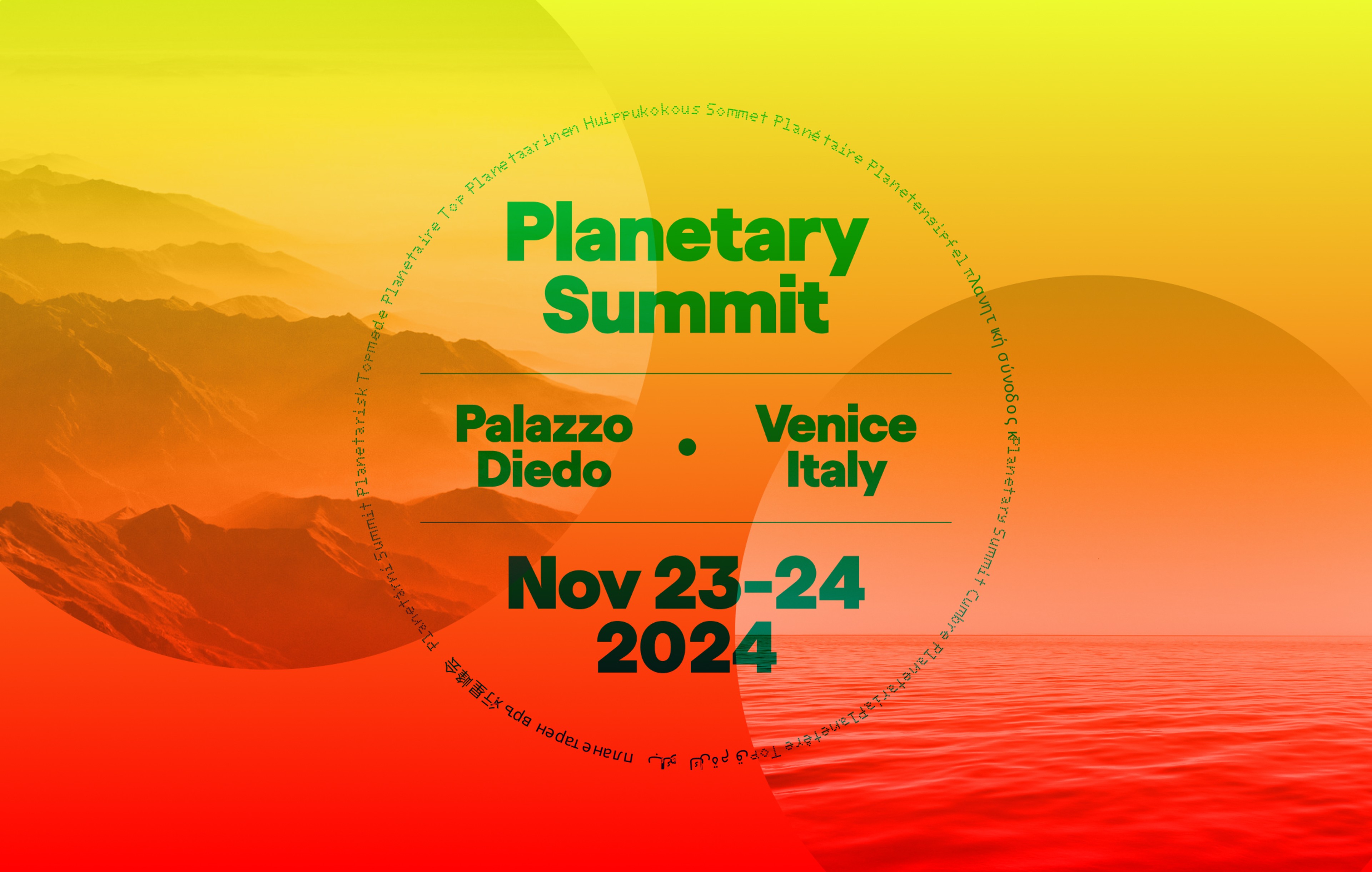
Planetary Summit
In November 2024, the Berggruen Institute hosted a two-day public event at our newly opened European headquarters in Venice’s Palazzo Diedo, focused on the theme of The Planetary. Attendees joined the Berggruen Institute for two days of dynamic dialogues, lightning talks, ontological and epistemological debates, and speculative scenario planning related to:
- Establishing the Category of the Planetary
- Extra-Human & Extra-Planetary
- ︎Planetary Sapience
- ︎The Limits of Current Planetary Governance
- ︎New Ideas for Planetary Governance
- ︎Planetary Pragmatism
Speakers for the conference included Rosi Braidotti, Frank Biermann, Rana Dasgupta, Pascal Lamy, Anne-Marie Slaughter, Zhao Tingyang, Ngaire Woods, Juichi Yamagiwa and more.
Purpose
The aim of the Summit was to bring together key thinkers and doers from around the world to discuss this important new concept and to stage a dialogue in concert with the Institute’s own cadre of researchers and writers. The conference served as a historic landmark in Planetary thinking – exploring its relevance for science, philosophy, and politics. The Planetary precedes us and exceeds us but does not exclude us. To the Berggruen Institute, the Planetary is not some ineffable entanglement revealed by the subtraction of global infrastructures or by the rejection of technoscientific reason and its related epistemologies. On the contrary, the Planetary includes human rationality as a critically important component of the work that our planet does through philosophy, culture, science, and engineering. Indeed, the contemporary secular concept of the Planetary – drawing together ideas from geology, history, biology, meteorology, astronomy, and more – derives from those forms of reason. The concept of the Planetary thus represented at once a scientific breakthrough, a philosophical event, and a political challenge and imperative.
In the first instance, the Planetary as a scientific concept focused on the Earth as an intricate system of interlaced ecosystems, with layered integration between biogeochemical systems and living beings – both human and non-human. Drawing especially on earth system science and systems biology, this holistic understanding was enabled by new planetary-scale technologies of perception – a rapidly maturing technosphere of sensors, networks, and supercomputers that collectively rendered planetary systems increasingly visible, comprehensible, and foreseeable. This newly evolved smart exoskeleton, a distributed sensory organ and cognitive layer, created an unprecedented form of planetary sapience.
As a philosophical event, the Planetary represented a post-anthropocentric performance of ontological and epistemic humility. It acknowledged not only that humans are not fundamentally different or separate from ‘nature’ but also that we are only beginning to understand the complexities of our interdependencies with planetary systems. If Copernicus’s heliocentrism represented the First Great Decentering, displacing the Earth from the center of the heavens, and Darwin’s theory of evolution by natural selection the Second Great Decentering, this time of God as the intentional maker of all creatures, then the emergence of the concept of the Planetary represented the Third Great Decentering, and the one that hit closest to home, supplanting the figure of the human as the measure and master of all things. We called this “recognition of the condition of planetarity”.
Lastly, relationships between the Planetary and the human represented a political challenge and imperative. To date, most political efforts to create shared futures centered on the rights-bearing individual, their embeddedness in particular nation-states, and the multilateral member state institutions that had been erected to coordinate between states. This institutional architecture proved itself structurally incapable of addressing planetary challenges such as climate change, pandemic risk, biodiversity loss, space junk, or oceanic plastics, all of which were driven by human activities but did not respect modernity’s traditional, anthropocentric political and social constructs. To address such ‘problems without passports,’ we needed fundamentally new governing institutions and modalities – in other words, a new form of planetary governance.
The Berggruen Institute worked on questions of the Planetary in various registers, developing such categories as technologies of perception (Claire Webb), planetary sapience (Benjamin Bratton), planetary automation (Stephanie Sherman), the condition of planetarity (Nils Gilman), planetary subsidiarity (Jonathan Blake), planetary realism (Nathan Gardels), symbiotic co-becoming (Song Bing), planetary temporalities (Niccolò Milanese), planetary metaphysics (Boris Shoshitaishvili), planetary constituents (Dawn Nakagawa and Laura Ryan), and Europe as a planetary laboratory (Lorenzo Marsili). These perspectives were published in a forthcoming volume by the Berggruen Press.
The Planetary offered a framing that invited deeper understanding of the planet and our embeddedness in it, as well as our emerging ability to shape it via new technologies of governance. The Planetary Summit provided a singular moment for collective discussion of the dynamic scientific, philosophical, and political possibilities opened by this conceptual breakthrough.
Sign-up to receive event notifications and registration information
Required fields are marked with *


